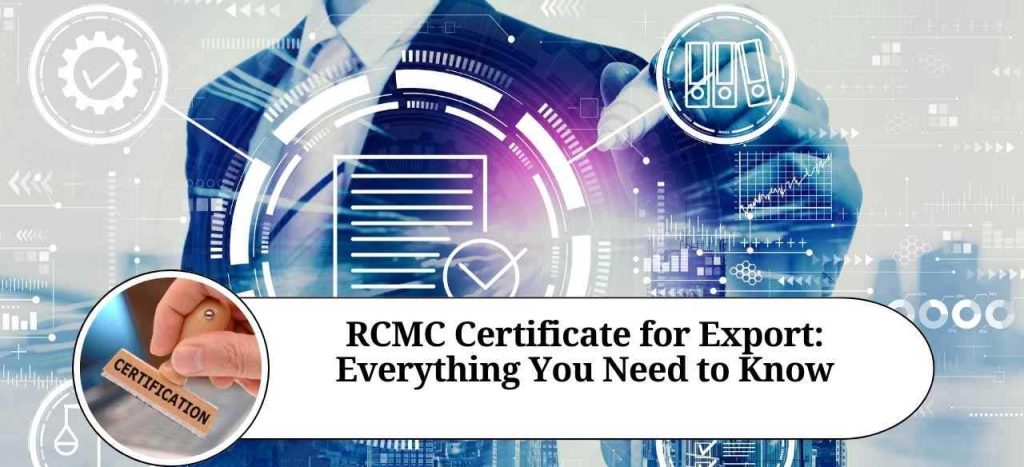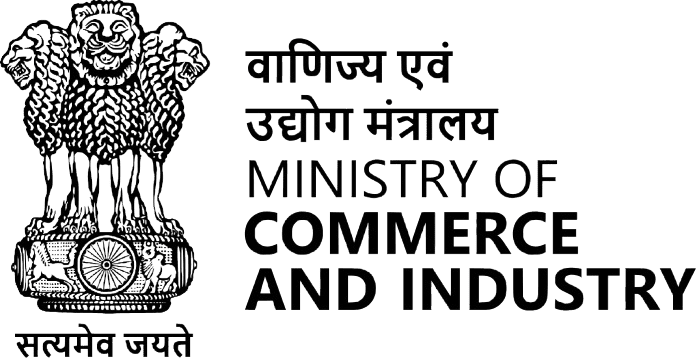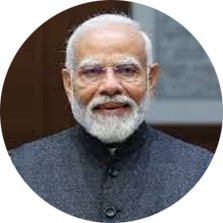
RCMC (Registration Cum Membership Certificate) is an essential document for businesses involved in the export sector in India. Issued by Export Promotion Councils (EPCs) or other authorized organizations, it serves as proof of membership in these bodies and is required for exporters to claim benefits under various export promotion schemes and to engage in international trade.
Here’s a detailed breakdown to demystify the concept of RCMC:
What is RCMC?
- RCMC (Registration Cum Membership Certificate) is a document that certifies an exporter’s registration with a designated Export Promotion Council (EPC) or a commodity board in India.
- It is required under the Foreign Trade Policy (FTP) of India to avail of benefits and concessions for exporters, including schemes under the Directorate General of Foreign Trade (DGFT).
- RCMC is mandatory for Indian exporters looking to engage in international trade and claim benefits under government schemes like the Merchandise Exports from India Scheme (MEIS) or Service Exports from India Scheme (SEIS).
Who Issues RCMC?
- Export Promotion Councils (EPCs): These councils are established to promote and facilitate exports in specific sectors. For example:
- Engineering Export Promotion Council (EEPC): For engineering goods exporters.
- Textile Export Promotion Council (Texprocil): For textile exporters.
- Pharmaceuticals Export Promotion Council (Pharmexcil): For pharmaceutical exporters.
- Commodity Boards: Boards like the Spices Board, Tea Board, and Coffee Board also issue RCMCs for specific commodities.
- Federation of Indian Export Organisations (FIEO): If an exporter deals in multiple products across various EPCs, FIEO can issue the RCMC.
Importance of RCMC
- Access to Export Benefits: Exporters need RCMC to avail of benefits under schemes such as the Duty Drawback Scheme, MEIS, and Export Oriented Units (EOU). Without RCMC, exporters cannot take advantage of these incentives.
- Recognition by DGFT: For filing applications related to imports and exports (such as IEC, DGFT benefits), having RCMC is necessary as it is often required during documentation.
- Industry Representation: Membership in an EPC or Commodity Board gives exporters a platform to address their concerns, get policy updates, and receive sector-specific support.
- International Trade Events: EPCs organize international trade fairs, buyer-seller meets, and trade delegations where RCMC holders can participate, thus opening doors for new business opportunities.
Eligibility and Process to Obtain RCMC
- Eligibility: Any Indian exporter (individual, partnership, or company) involved in the export of goods and services needs to register with the relevant EPC or Commodity Board.
- Process:
- Choose the Correct EPC: Based on the product you are exporting, identify the relevant EPC. For example, if you export handlooms, you would register with the Handloom Export Promotion Council.
- Application Submission: Submit the application form along with necessary documents such as:
- IEC (Import Export Code)
- Bank Certificate of Exporter’s Realization
- PAN Card
- GST Number (if applicable)
- Fee Payment: Pay the membership fee, which varies depending on the council and the nature of the business.
- RCMC Issuance: Once approved, the EPC will issue the RCMC. The certificate is generally valid for 5 years, after which it needs to be renewed.
Documents Required for RCMC Application
- Import Export Code (IEC): A 10-digit code issued by DGFT, mandatory for international trade.
- PAN Card: The Permanent Account Number (PAN) of the company or individual applying.
- Bank Certificate: A certificate from the exporter’s bank certifying the export performance.
- GST Registration: In some cases, GST registration is required.
- Company Incorporation Documents: For companies or LLPs, documents like Certificate of Incorporation may be needed.
RCMC Validity and Renewal
- Validity: Typically, RCMC is valid for 5 years from the date of issuance.
- Renewal: Exporters must apply for renewal before the certificate expires. The renewal process involves submitting updated documents and paying the necessary fees.
Types of Exporters and RCMC
- Merchant Exporters: Businesses that procure goods locally and sell them overseas must obtain RCMC from the relevant EPC based on the type of goods they export.
- Manufacturer Exporters: Manufacturers who export their own products also require RCMC.
- Service Exporters: Companies involved in service exports (such as IT, consulting, and other services) are required to register with the Services Export Promotion Council (SEPC).
E-RCMC (Online Process)
- The DGFT and EPCs have shifted towards digital processes for applying and renewing RCMCs. Exporters can apply for RCMC through the DGFT online portal.
- This e-RCMC facility allows exporters to submit their applications, track progress, and renew memberships online, simplifying the process.
Benefits of Having RCMC
- Government Incentives: Exporters can claim a range of incentives under government schemes like MEIS, RoDTEP (Remission of Duties and Taxes on Export Products), SEIS, and others.
- Participation in Trade Fairs: EPCs often facilitate participation in international trade fairs, exhibitions, and buyer-seller meets, providing exposure to global markets.
- Export Data and Market Intelligence: EPCs offer members insights, market reports, and data to help them expand their business overseas.
- Networking and Policy Advocacy: Being a member of an EPC allows exporters to network with peers and represent their industry’s interests in policy-making forums.
Conclusion
RCMC is a crucial document for exporters in India. It not only serves as proof of membership in an Export Promotion Council but also unlocks access to several export-related benefits and incentives. Whether you are a small or large exporter, obtaining and maintaining an RCMC can significantly enhance your participation in international trade and help you take full advantage of the government’s export promotion schemes.





